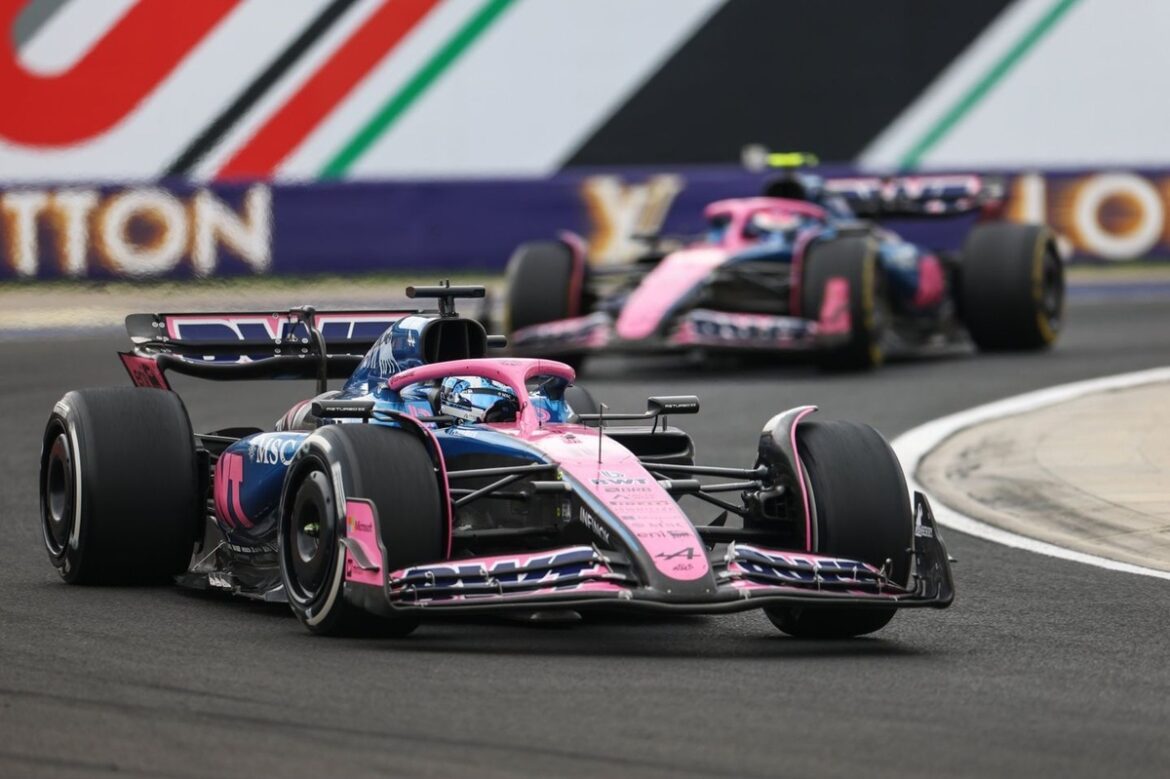Alpine’s Unique Position in the Formula 1 Championship: A Closer Look
In the fiercely competitive realm of Formula 1, finishing last is often something teams strive to avoid at all costs. The implications of a last-place finish can be significant, including a substantial loss of prize money and a blow to team morale. However, if a team were to find itself at the bottom of the standings, Alpine seems to be navigating the situation with a surprising degree of success. In the 2025 season, the Enstone-based team has already amassed 20 points, setting a remarkable record for a team that occupies the last position in the championship standings, particularly impressive given that this achievement has been reached over just 14 races.
The Evolution of the Points System
The scoring system in Formula 1 has transformed over the years, impacting how teams accumulate points. While Alpine’s current tally of 20 points may seem modest, it stands out when compared to historical performances. For instance, Toro Rosso, back in 2009, managed to secure only eight points throughout a 17-race season. If we were to apply today’s points system retrospectively, Toro Rosso would have achieved 29 points that year, thanks to the more competitive nature of the racing and the increased number of teams finishing in the points.
Alpine’s current performance also showcases a significant improvement in qualifying metrics. During the 2009 season, Toro Rosso made it out of Q1 in 14 out of 34 qualifying attempts. Alpine, on the other hand, has made it out of Q1 18 times out of 34 attempts this season, which includes performance in sprint races. Without the sprints, Alpine’s record stands at 16 out of 28 qualifying sessions, indicating a notable consistency in their qualifying efforts.
Individual Contributions and Team Dynamics
A closer examination of Alpine reveals a disparity in performance between its two drivers. Pierre Gasly has been the standout performer, single-handedly contributing all 20 of Alpine’s points this season. His best finish came at Silverstone, where he secured a sixth-place finish. Meanwhile, his teammates Jack Doohan and Franco Colapinto have struggled significantly, failing to achieve any top-12 finishes in races. This inconsistency has put additional pressure on Gasly to deliver results, underscoring the potential for Alpine to achieve greater success if both cars could perform at a higher level.
Despite Alpine’s current position, the fight to avoid the wooden spoon is still challenging. They find themselves trailing Haas by 15 points, which highlights the competitive edge Haas has managed to maintain. Haas, during the 2023 season, recorded a notable total of 12 points, marking the second-highest tally for a team finishing at the bottom of the standings. This total was achieved over 22 races, with Nico Hulkenberg contributing nine points and Kevin Magnussen adding three points to the team’s score. Hulkenberg’s remarkable seventh-place finish in Melbourne stands out as a highlight of Haas’s season.
Qualifying Performance in Context
When considering qualifying performance, Haas has successfully placed in the top 15 in 34 out of 56 qualifying sessions, and even more impressively, in 27 out of 44 qualifying sessions when excluding sprint races. Despite these positive qualifying results, Haas has faced difficulties translating them into race-day success. A notable example of this was during the Canadian Grand Prix, where Hulkenberg started from second position but ultimately fell to seventh place after a series of events, including a disruptive safety car.
In contrast, Alpine’s qualifying performance, particularly Gasly’s ability to reach Q3, has been a bright spot in their campaign. Gasly’s best qualifying performance this season was a fifth-place start in Bahrain, showcasing his potential to compete at higher levels consistently. This indicates that while Alpine may currently be in a challenging position, their driver’s capabilities could lead to improved results in the future.
Historical Context: A Look Back at Last-Place Teams
Historically, there have been various instances of teams finishing at the bottom of the standings while still managing to score points. For example, Minardi, in 2005, garnered seven points—more than they had accumulated in the previous ten years combined. This achievement was notably highlighted by a unique race at the United States Grand Prix, where only six cars participated due to issues with tire regulations, allowing Minardi to secure fifth and sixth place.
The list of teams that have managed to score points while finishing last includes a variety of names throughout F1 history. Arrows was the first to achieve this milestone in 2002, with Heinz-Harald Frentzen securing two points through two sixth-place finishes. Other teams that have joined this exclusive group include Minardi, Spyker, Toro Rosso, Manor, Sauber, Williams, and most recently, Alpine.
Alpine’s Potential for Growth
Looking ahead, Alpine holds the potential to improve its standing as the season progresses. With Pierre Gasly leading the charge, there is hope that if the second car can begin to perform at a competitive level, the team could escape from the bottom of the standings. The challenge remains, however, as the competition is fierce, and every point counts in the battle to avoid the wooden spoon.
As the 2025 season continues to unfold, it will be fascinating to observe how Alpine navigates the remaining races. The team’s ability to refine its performance and leverage the skills of its drivers will be crucial in determining whether they can make significant strides in the championship standings. With the right strategy and execution, Alpine might just surprise everyone and turn their fortunes around as the season progresses.
Conclusion
In summary, Alpine’s unique situation in the Formula 1 championship this season highlights the complexities of the sport. Despite being in last place, the team’s achievement of 20 points signifies a remarkable performance relative to historical benchmarks for struggling teams. As Alpine continues to build on its current momentum, the potential for growth and improvement remains, making the remainder of the season an exciting prospect for both the team and its fans.
